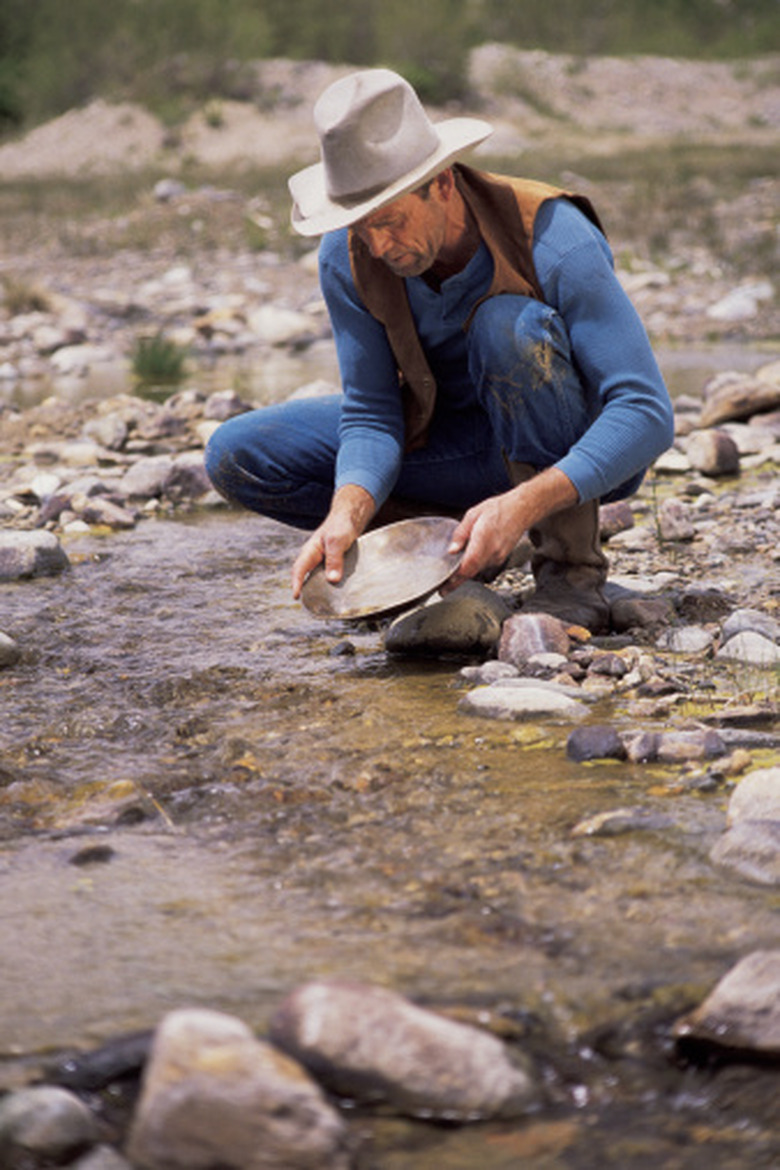How To Extract, Separate & Refine Gold
The extraction and processing of gold is as expensive and laborious as it is profitable. You must purchase tools, manpower and infrastructure, and then take on the challenging work of extraction — likely by hard rock mining or the dredging of rivers or lakes. Finally you will separate the gold from other rocks and minerals, often with sodium cyanide, and refine it by smelting the gold ore or by using electric current or acids.
Step 1
Determine your gold extraction method. Viable methods include hard rock mining (the most costly and productive method), dredging rivers and lakes (used by small business) and byproduct mining, in which gold is extracted as a byproduct when mining for other metals.
Step 2
Purchase tools, manpower and infrastructure required for extraction. For instance, hard rock mining can require drilling to depths of up to 3900 meters. Extract the gold ore and transport it to your gold processing unit.
Step 3
Separate the gold from unwanted rocks and minerals using one of several methods. You can mix the gold ore with sodium cyanide, which will attach itself to the gold and separate other elements such as zinc. Or pan the gold manually in water to separate gold from the gravel and sand in a stream.
Step 4
Refine the gold you have extracted and separated. Use Miller and Wohlwill processes, which process gold chloride by subjecting it to an electric current; this separates gold from impurities and attaches it to the anodes generating the current. Alternatively, use acids and dissolution in ores that are affected by acid-soluble feedstocks, or smelt gold ore and remove the dross that accumulates on the top of the mixture.
Warning
The separation and refinement of gold with sodium cyanide, also called cyanide bleaching, can have terrible effects on the environment if not managed correctly.
Cite This Article
MLA
Latham, Andrew. "How To Extract, Separate & Refine Gold" sciencing.com, https://www.sciencing.com/how-8313019-extract-separate-refine-gold/. 9 January 2018.
APA
Latham, Andrew. (2018, January 9). How To Extract, Separate & Refine Gold. sciencing.com. Retrieved from https://www.sciencing.com/how-8313019-extract-separate-refine-gold/
Chicago
Latham, Andrew. How To Extract, Separate & Refine Gold last modified March 24, 2022. https://www.sciencing.com/how-8313019-extract-separate-refine-gold/
